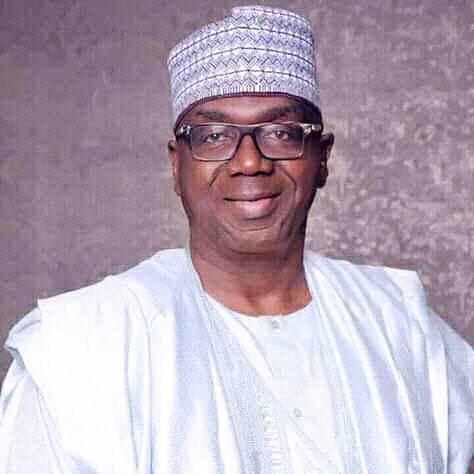Kwara State Government Adopts Strategic Model To Alleviate Poverty

The Kwara state government, north central Nigeria, says, it has adopted a strategic model that would help to empower its citizens, create wealth and alleviate poverty.
Lukman Olukayode Ahmed, Special Assistant on Poverty Alleviation to governor AbdulRahman AbdulRazaq, listed the strategies the Kwara state government is adopting in an interview with Voice of Nigeria in Abuja.
He said the government was especially targeting young men, and women (including the old) as well as the poor and vulnerable in the state.
He added that the intervention cuts across various sectors and areas of the state including; Education, critical infrastructure development, Agriculture, Health; in the sixteen local government areas which has “earned him commendations even from across political divides.''
Non Interest Loans
The Governor's aide also said the state government is giving soft(non interest) loans to market women and to young people doing business, in order to boost the local economy.
In addition, the state government is improving the work force by employing young and vibrant citizens in to government agencies and parastatals.
“Over 50 percent of job opportunities have gone to the youth, a development that has endeared the governor to young people, with some referring to him as a youth friendly governor,” he said.
Infrastructure Development
On infrastructure, Ahmed said government has restored public water supply in the state, as well as strengthened collaborations with security agencies to maintain peace and security to create an enabling and secure environment for businesses to thrive.
Meanwhile, “the state's Kishi-Kaiama Road, has been getting the state government's attention until recently when the federal government took it up,” he said.
According to the 2022 global poverty indicators poverty in sub saharan Africa has reached a record high especially in the wake of the COVID-19 pandemic.
This has pushed the issue of poverty on to the front number across states in Nigeria even as a recent National Bureau of Statistics (NBS), report showed that over 60 percent of Nigerians are multidimensionally poor.
Thus, Mr Ahmed says government at all levels need to do even more to ensure that the people of Nigeria do not fall lower below poverty lines.
Ahmed, who was recently honoured for his commitment in spearheading pro-people and anti-poverty mandate in Kwara state, by FONU-Edutainment, (a non-profit organisation that seeks to promote youth empowerment and inclusion in Nigeria's socio-political space), also called for more interventions across board, and urged Nigerians to continue to work hard to alleviate poverty.
Cloud Tag: What's trending
Click on a word/phrase to read more about it.
Yahaya Seriki Binta Abubakar Mora Iponrin Rotimi Atere Abubakar Lah UITH Alfa Modibo Belgore Bahago Onilu NYSC Agor Kwara State Coalition Of Business And Professional Associations TESCOM Ilorin Curfew Oya State GAMA Abubakar Suleiman Mohammed Ibrahim Umar Saro NFAI Kazeem Adekanye Funmilayo Isiaka Oniwa Rotimi Samuel Olujide Ilofa Abdulkadir Jimoh AbdulHamid Adi Esinrogunjo Abdulganiyu Salahudeen Baba Issa Awoye IYA ALFA NLA Kehinde Boyede Garment Factory Afeyin-Olukuta Ahmed Saidu Rufai Hijab Al-Adaby Kunle Akogun Shehu Adaramaja Jawondo Moses Salami Roheemat Hammed Lanre Aremu Fatimoh Lawal Sheikh Alimi Elese Of Igbaja Mohammed Lawal Bagega Mujtabah Bature Yusuf Amuda Aluko Emir Of Ilorin Awili Pedro Salihu Ajia Sarah Alade Ayinde Oyepitan Saadu Gbogbo Iwe Abdulrahman Abdulrasaq KFA Abdullahi Samari Alimi Abdulrazaq Muhammad Toyin Sanusi NAWOJ Ayo Adeyemi Tafidan Kaiama Ilesha-Baruba-Gwanara Lanre Badmus Mazars Consulting Mustapha AbdulGaniyu Olomu Of Omu-Aran Sobi Specialist Hospital Rafiu Ajakaye Abdulhakeem Adelaja Amao Paul Olawoore Lai Mohammed Abdulrazaq Adebayo Patience Jonathan Jaiz Bank Prince Bola Ajibola Toun Okewale-Sonaiya


